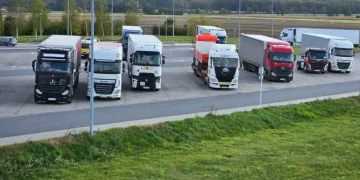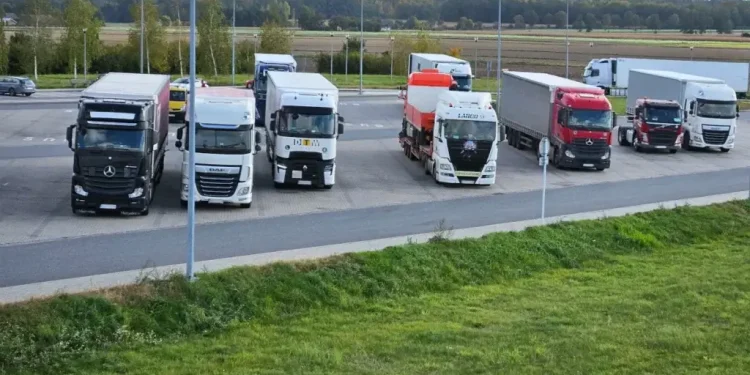By Maria Kalamatas | August 1, 2025
Seville, Spain — At a dusty truck stop just off the A-4 motorway, Pedro Márquez leans on his trailer and wipes the sweat from his brow. It’s 10:46 a.m. and already 42°C in the shade. His load — perishable pharmaceuticals — isn’t supposed to sit in direct heat for long.
“We used to worry about roadblocks and fuel prices,” he says. “Now? The sun is our main problem.”
Logistics in a frying pan
Spain, Italy, and southern France are entering their third week of a record-breaking heatwave, with temperatures consistently above 40°C. Asphalt is softening. Brakes are overheating. Dozens of trucks have been sidelined in the past 72 hours due to tire failures and engine shutdowns.
In response, several logistics firms are now scheduling long-haul road freight exclusively at night, despite higher operational costs.
“We had to shift 70% of our fleet’s driving hours to post-sunset slots,” said Marta Llorente, operations chief at TransEuropa Logistik. “It’s either that or lose clients due to spoiled goods.”
Rail operators stretched
But shifting to rail is no easy fix. Rail lines across Catalonia and Provence are also experiencing disruptions as metal rails expand and warp in the heat. Maintenance crews are working overtime, but delays are mounting.
“Steel doesn’t lie,” said a maintenance technician from SNCF. “We’re slowing trains or cancelling them entirely. It’s not safe otherwise.”
Freight trains carrying automotive parts, frozen food, and electronics are now delayed by an average of 18–36 hours, particularly on the Perpignan–Milan corridor.
Clients adjust expectations
Some shippers are responding by increasing buffer stock in northern distribution centers, anticipating delays in southern legs. Others are turning to multimodal solutions, combining night trucking with cold storage staging hubs in intermediate cities like Zaragoza and Lyon.
One French exporter of luxury cosmetics summed it up bluntly:
“It’s either adapt or explain to a client in Tokyo why their creams arrived half-melted.”
Climate disruptions become structural
This is the second consecutive summer where transport in southern Europe has been severely impacted by heat. Industry analysts warn that what used to be exceptional weather is becoming the new norm.
Back in Seville, Pedro glances at his dashboard. He’ll wait another two hours before setting off. His GPS shows a clean run to Valencia — but only if the road doesn’t melt before he gets there.





















